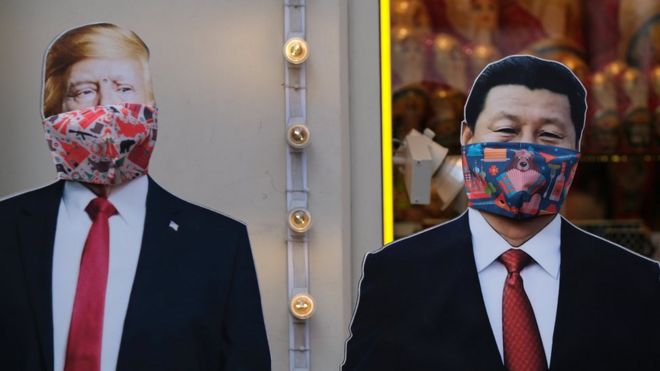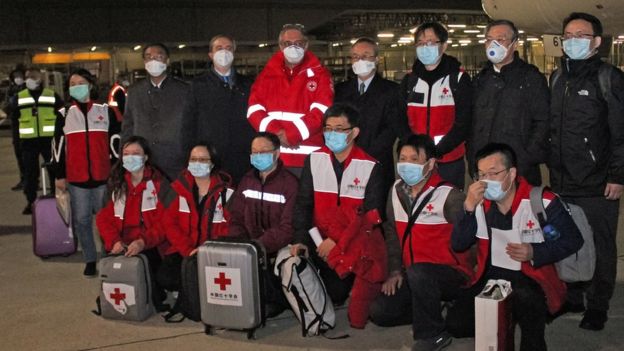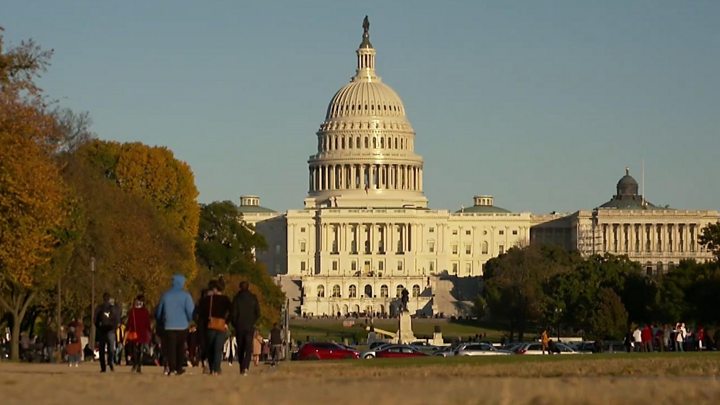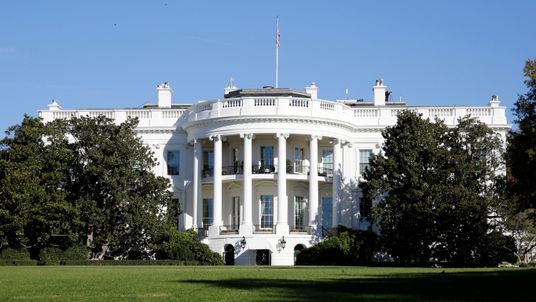Coronavirus: Boris Johnson 'responding to treatment' in intensive care
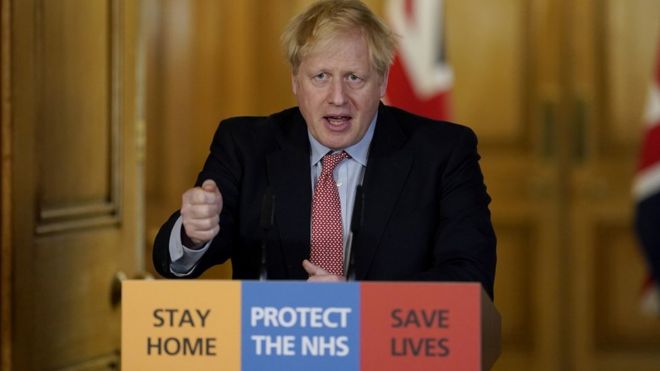 PA MEDIA
PA MEDIA
Boris Johnson is "responding to treatment" for coronavirus after he spent a second night in intensive care.
The prime minister is being kept in St Thomas' Hospital in London "for close monitoring" and remains clinically stable, Downing Street said.
Downing Street said he was not working but could contact those he needed to.
No 10 also suggested a review of the lockdown measures put in place on 23 March would not go ahead as planned - at the three-week point on Monday.
The PM is "comfortable, he's stable, he's in good spirits", health minister Edward Argar said earlier on Wednesday.
Asked on BBC Breakfast when the measures might be lifted, Mr Argar said the scientific evidence "isn't yet there to allow us to make us a decision".
"We have to be over that peak before we can think about making changes," he said, adding: "It's too early to say when we will reach that peak."
Foreign Secretary Dominic Raab, who is deputising for the PM, said on Tuesday he was "confident" the PM would recover from this illness, describing him as a "fighter".
Speaking at the Downing Street coronavirus briefing, he said Mr Johnson was receiving standard oxygen treatment and was breathing without any assistance, such as mechanical ventilation or non-invasive respiratory support.
The prime minister was admitted to St Thomas' on Sunday, on the advice of his doctor, after continuing to display symptoms of a cough and high temperature 10 days after testing positive for the virus.
Mr Raab said the prime minister was being monitored closely in critical care, as was usual clinical practice.
Source: BBC NEWS






